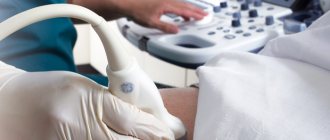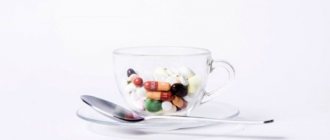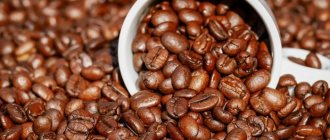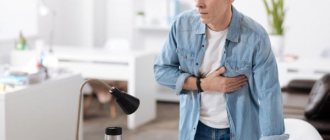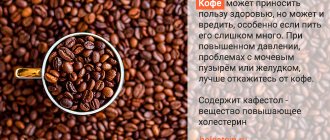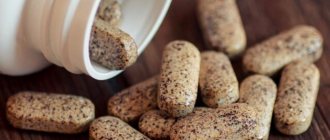The effect of caffeine on test results
A standard shot of sweetened espresso, containing only 90 mg of caffeine, triggers the following processes in the body:
- Stimulation of the activity of the endocrine system;
- Release of sugar and increase in cholesterol concentration;
- A sharp increase in the production of adrenaline and cortisol;
- Slowing iron absorption;
- Increased stress on the urinary system due to the diuretic effect of coffee.
The listed effects last for 3-4 hours: this factor must be taken into account when planning to undergo an examination.
Coffee before stool test
Clarify what exactly the analysis is for. If this is an analysis to determine pinworms and worm eggs, caffeine can be safely consumed in any usual doses, it does not affect anything.
If the gastrointestinal tract is examined, you will have to give up coffee.
- Coffee can often cause stomach upset and change the consistency of stool.
- If you drink an unfiltered drink, grounds may get into the stool, it provokes the release of mucus, scratches the intestinal walls, which is why there may be foreign impurities in the stool.
- Coffee, especially instant coffee, can darken the color of stool.
Capillary intake at UAC
A simple study determines the basic indicators. Is it possible to drink coffee before donating blood for a general test? If it is carried out as part of a professional or routine medical examination, you can treat yourself to a cup of Americano or espresso. But you will have to give up various additives - milk, sugar, cream.
But the need to confirm or refute certain diagnoses based on diagnostic results changes the situation. The attending physician will warn you about the need to draw blood strictly on an empty stomach.
A simple analysis to determine the Rh factor does not imply any restrictions - you can drink any coffee before it.
What happens if you drink coffee before taking tests?
Caffeine affects blood and urine sugar levels, hormonal balance, cholesterol and other data. Just one cup of your favorite drink can lead to the doctor receiving incorrect information about your health.
- If natural indicators are underestimated, caffeine can raise them to the desired level, and the doctor will not notice the problem, which means the disease will be advanced.
- If natural indicators are normal or high, caffeine will increase them even more, and the doctor will consider this a sign of illness, as a result of which unnecessary treatment will be prescribed.
As a rule, test results are double-checked, and no one prescribes serious therapy based on the results of one test. But there's no point in taking them again just because you couldn't resist a cup of coffee in the morning.
Blood from a vein
Venous blood is examined to determine the level of various hormones, identify disturbances in the functioning of internal organs, and obtain information about metabolism.
- For sugar or biochemistry. From the evening before the test, all glucose-containing products, including coffee, are excluded from the menu. If this taboo is violated, the analysis will show a critically high glucose level;
- For hormones. Caffeine distorts the results because it activates the endocrine system. The ban also applies to pregnant women monitoring hCG levels;
- For uric acid. The short-term diuretic effect created by caffeinated drinks will inevitably reduce the accuracy of the study;
- For infection. In this case, biological material is needed to detect antibodies to the viruses of AIDS, HIV, syphilis, etc. Caffeine does not affect their presence in any way, and therefore, drinking coffee is allowed.
A brief conclusion from what has been written: before biochemical and hormonal laboratory diagnostics, it is forbidden to drink coffee. And caffeine does not interfere with the detection of hidden infections.
Harm and benefit
For a long time, there was an opinion that caffeine, which is part of coffee, only has a negative effect on the body. It increases blood pressure, which can be especially dangerous for hypertensive patients and has a detrimental effect on the cardiovascular and nervous system. Now experts have come to the conclusion that the lack of caffeine in the body leads to excessive aggressiveness and headaches. For patients suffering from low blood pressure, coffee drink is a miracle drug that brings blood pressure back to normal in the shortest possible time.
Despite the positive properties of caffeine, experts still recommend drinking coffee without it and in moderation.
In addition to caffeine, the drink contains vitamins (for example, vitamin P), various minerals and organic substances.
Donation
Is it possible to drink coffee before donating blood for its further use for research and educational purposes? If most tests require blood sampling on an empty stomach, then with donation the opposite is true - a light breakfast is required.
There is no categorical ban on coffee, but there are clear recommendations:
- The drink must be natural, made from ground grains. Soluble surrogate contains many chemicals;
- You cannot add milk or cream to coffee - the restriction on dairy products begins to apply half a day before donating blood.
The best solution is to drink espresso or latte after the procedure to eliminate the possibility of caffeine influencing the quality of the biomaterial.
Effect of drugs
Medications are included in a separate column when taking tests and donating.
This problem is that when taking alcohol, the patient may know which blood components will change. In the case of medications, changes will be the most unpredictable .
If someone regularly takes medications for illnesses, then in fact they will not be allowed to donate.
The drugs are not intended for treatment, it is better to simply stop taking them a few days before the test, and then resume taking them.
To get tested, it is better to visit a doctor who can explain which medications can be taken and which ones should be avoided.
If we are talking about giving up medications, without which the patient simply cannot maintain a normal state, then the doctor may advise taking them several hours before and after the donation, so as not to cause harm or radically change the composition of the blood.
A separate list can take into account medications taken by pregnant women. Medicines may contain hormones and cause various changes in their levels in the blood.
These drugs have a long-term effect on the body, therefore pregnant women are closely monitored, which will temporarily analyze changes in blood composition.
Is it possible to drink tea before donating blood?
Up to 70 mg of this caffeine can be contained in 200 ml of black tea, so it is logical that doctors recommend refraining from consuming it immediately before donating blood to:
- Hormones
- Uric acid;
- Cholesterol;
- Sugar.
Tea is allowed when taking blood to determine the rate of clotting, CBC, group and Rh factor, autoimmune pathologies, hemoglobin.
Is it possible for donors to drink tea before donating blood? It is possible and even necessary! In the instructions given to everyone who wants to become a donor, there is a clear recommendation: an hour before the collection, drink a cup of strong tea with jam to avoid dizziness after the procedure.
Coffee before urine test
Caffeine is excreted through the kidneys and genitourinary system, so its presence can affect certain indicators and also cause increased diuresis, that is, more fluid will be excreted. In addition, coffee can cause urine color to change, making it darker.
As a rule, a urine test is collected in the morning, which means you can abstain from caffeine in the first 10-15 minutes from the moment you get up, and drink your favorite drink later, when you have collected the required amount of urine. If urine is collected throughout the day, then it is better to abstain from caffeine-containing drinks for the entire period.
Is it possible to eat
In order not to change the reliability of certain parameters of the biomaterial under study, it is necessary to familiarize yourself with the list of prohibited products. The preparation method depends on the purpose for which the material is collected. It is important to remember that on the eve of tests (most of them) you should not eat spicy, fatty or sweet foods, or sugar. Additionally, it is recommended to avoid eating oranges, tangerines, bananas, and avocados. Dill and cilantro can also have a negative impact on the results of the study.
On the eve of collecting biomaterial for examination, you can have dinner with stewed or raw vegetables, cereals, and white meat. It is allowed to include low-fat fish in the menu. If you decide to prepare a salad in the evening, then instead of mayonnaise, season it with olive or vegetable oil. The following fruits can be eaten the day before:
Before biochemical analysis
This type of analysis is a basic method for examining the condition of internal organs based on metabolite substances circulating in the blood. During biochemical analysis, it is necessary to collect biomaterial on an empty stomach. In this case, you should not only eat, but also drink tea and coffee before the study, not to mention alcohol-containing drinks. Additionally, you should avoid brushing your teeth and chewing gum.
In addition, it is important to try to exclude fried, smoked and fatty foods and all sources of animal protein (fish, meat, kidneys, etc.) from your diet 12-24 hours before the analysis. To obtain more reliable results, the treating specialist may prescribe the subject a relatively strict diet, which should be followed 1-2 days before the test. Such an event should not be ignored, because... The accuracy of the diagnostic results determines how quickly and effectively the therapeutic process will proceed.
Before general analysis
It is necessary to undergo this type of diagnosis on an empty stomach, i.e. You cannot eat anything immediately before collecting biomaterial. In this case, it is advisable that the subject take his last meal no earlier than 8 hours before the procedure. Any meal before the general analysis should be light and consist of a small amount of food. It is strictly forbidden to eat fish, meat, smoked foods, sweet products, sugar, fatty and canned foods, and all types of oils.
Despite such strict restrictions, patients for whom food intake is vital even before taking biomaterial, there is a small exception in the form of a certain list of products. Before this type of examination, they can eat the following food:
- weak tea (unsweetened);
- bread;
- cheese (low-fat);
- fresh vegetables;
- all types of porridges made with water, but without added sugar or butter.
Nutrition before sugar testing
Submitting biomaterial to check your sugar level requires avoiding the consumption of foods 8-12 hours before the analysis. Any food increases the blood glucose level and thereby distorts the result. The exception is taking an analysis for a sugar curve, the essence of which is to track changes in the indicator during the day with a normal diet.
How to improve your analysis
To improve the analysis, you must adhere to the recommendations described. To make the result more reliable, two days before blood donation it is recommended to go on a special diet - it is very important if such complex studies are carried out as biochemical analysis, detection of cancer markers, immunogram, determination of antibodies to infections, etc. At this time, it is recommended to stop using:
- fatty, smoked and fried foods;
- spices;
- alcohol;
- sweets and confectionery in large quantities.
source
Restrictions on donating blood
If you decide to become a donor, first familiarize yourself with the existing restrictions. Their compliance is mandatory:
- The last intake of alcoholic beverages should be no less than two days before donating blood.
- On the eve of the procedure, you must avoid spicy, smoked, sweet and fatty foods, and dairy products. On the day of blood donation, a nutritious breakfast is required.
- You should not smoke for an hour before the procedure.
- The day before donating blood, do not take analgesics.
Women should not donate blood during menstruation and for a week after the end of the discharge. Pregnant women are not allowed to undergo this procedure. There is also a list of diseases that a donor should not suffer from. It consists of:
